We Dive Into Your Projects
What were the projects or initiatives you worked on? We probe to understand the scope, the stakes, and the significance.
"Tell me about the biggest project you led last year..."17+ Biotechnology Resume Examples
In Biotechnology, you're competing with 800 applicants per search
You're Not Rejected.
— You're Overlooked —
We fix your biotechnology resume with one conversation
The strongest biotechnology resumes lead with trial outcomes, laboratory throughput, and regulatory milestones — not technique lists or degree credentials. Hiring managers at firms like Genentech, Amgen, and Moderna scan for GCP/GLP/GMP compliance, clinical trial scope, assay development impact, and measurable contributions to pipeline advancement. Every resume sample on this page was built through a 1-on-1 interview that extracted the specific scientific and commercial outcomes that differentiate candidates in a field averaging 800 competitors per job search.
Each biotechnology resume sample below was written through our 1-on-1 interview process. Click any biotechnology resume example to see the full sample and learn how we transformed their experience into proof.
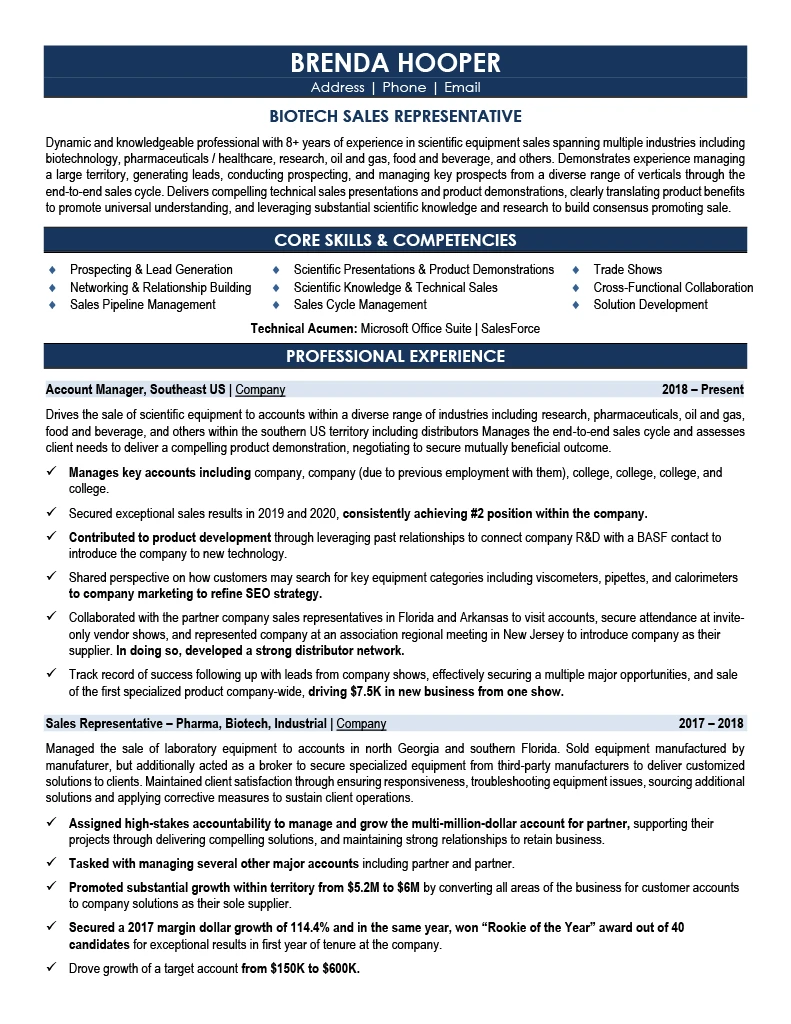
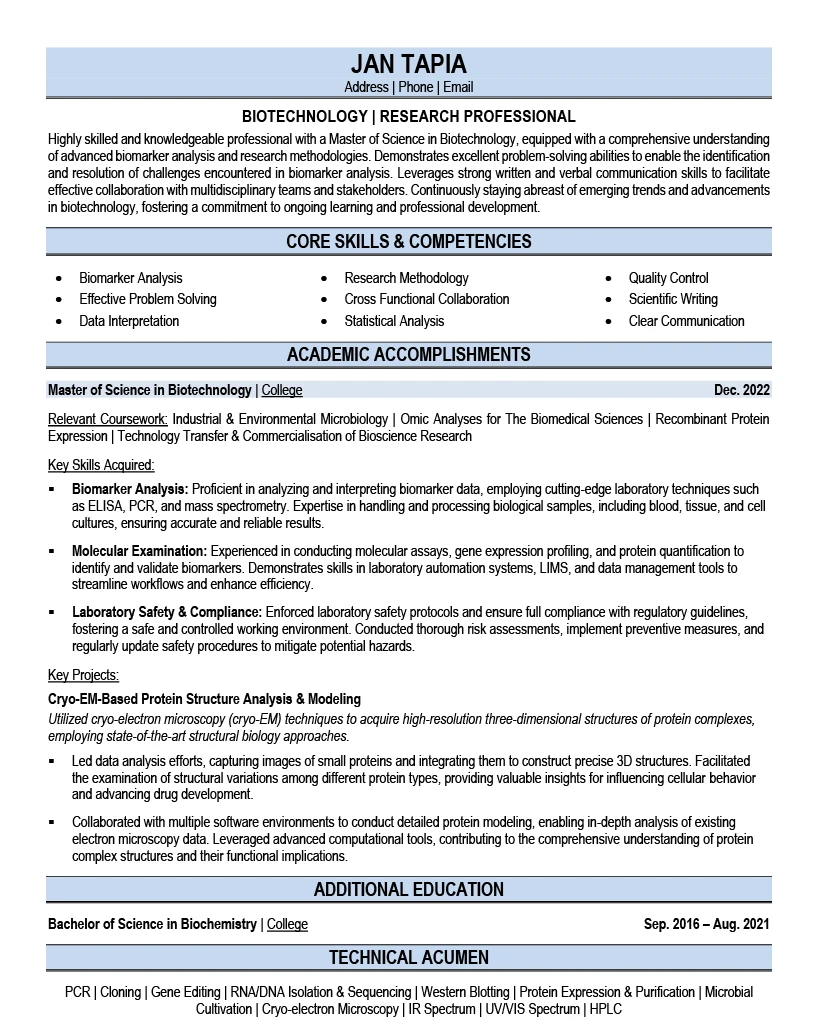
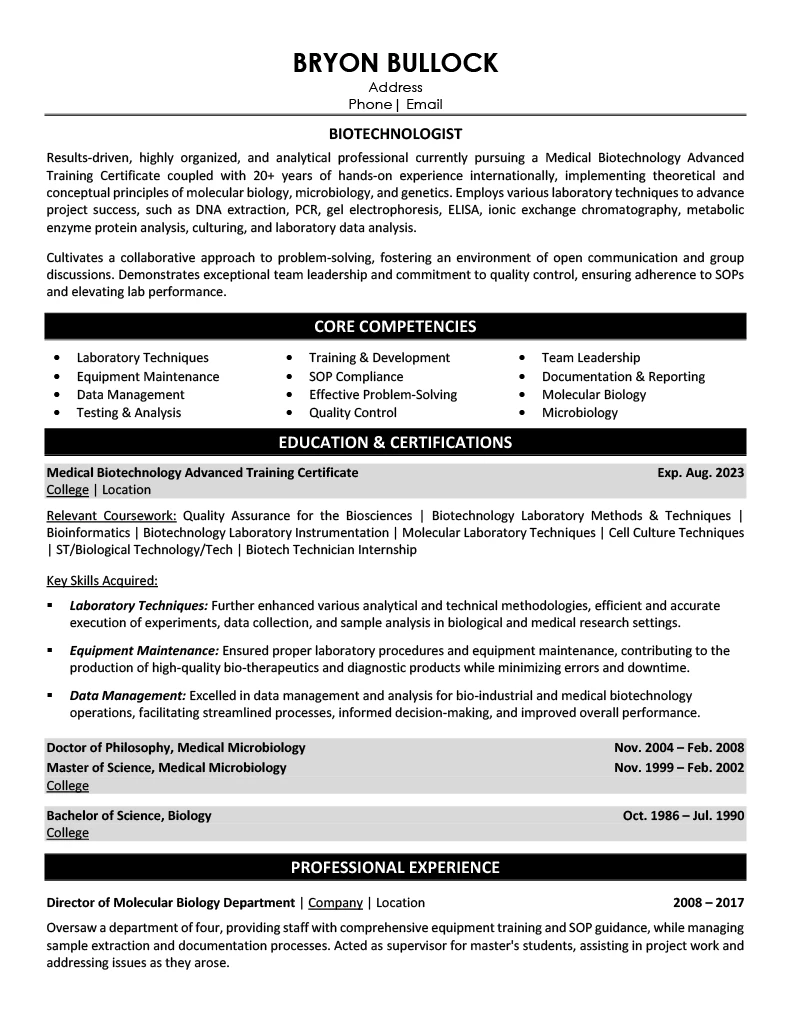
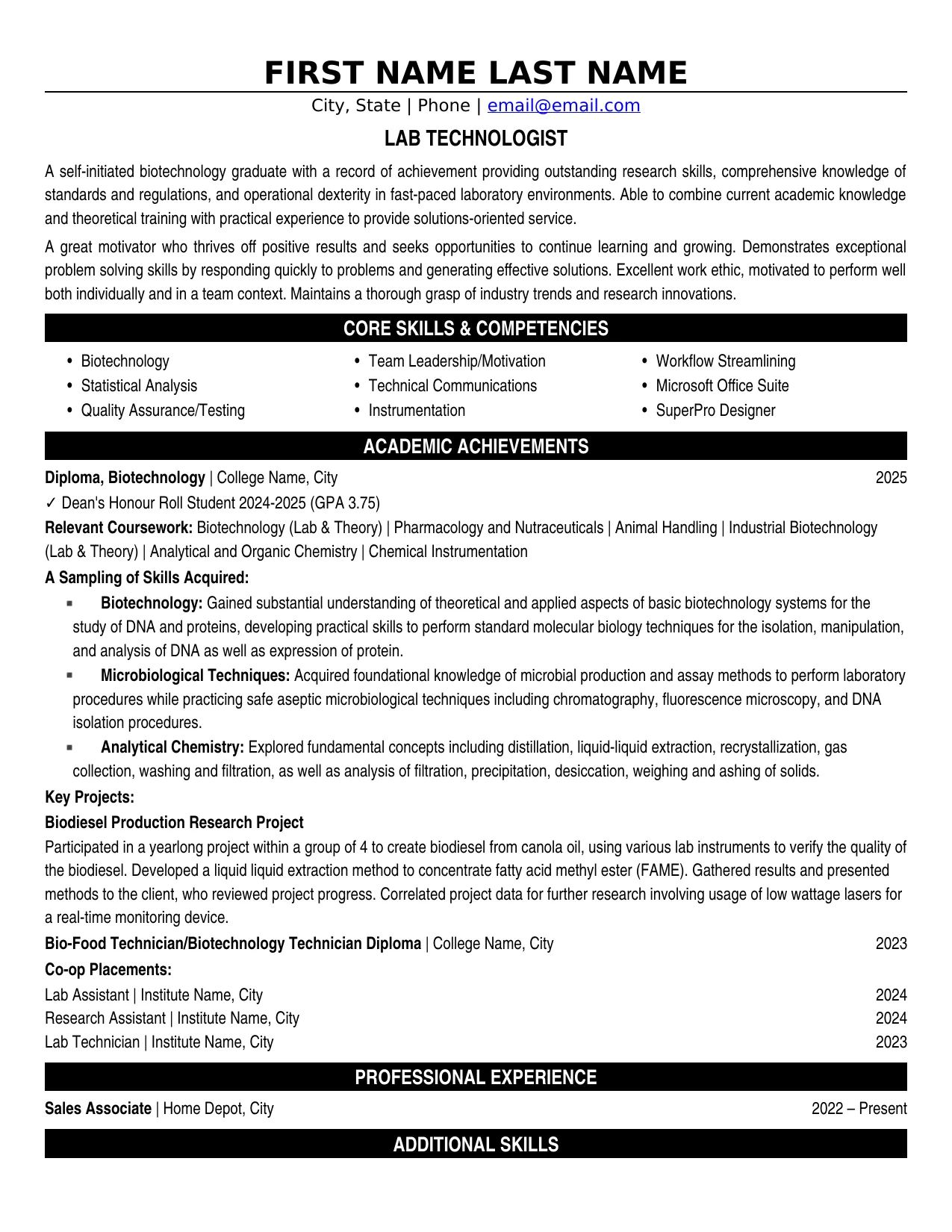
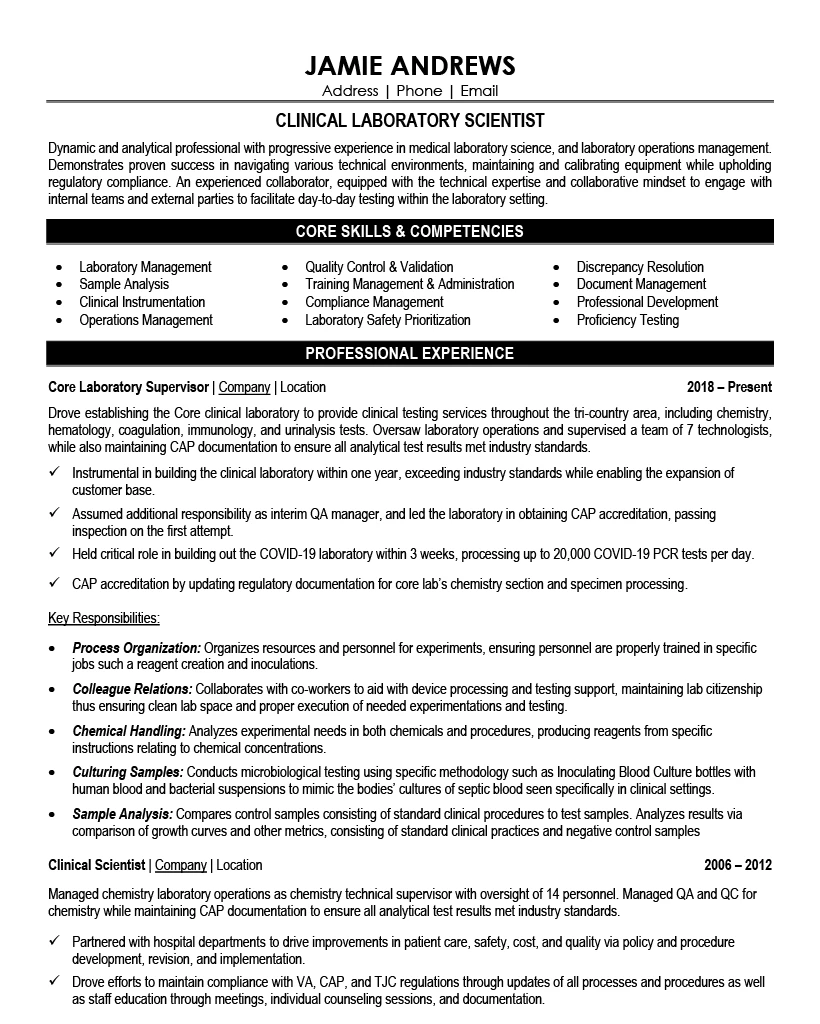
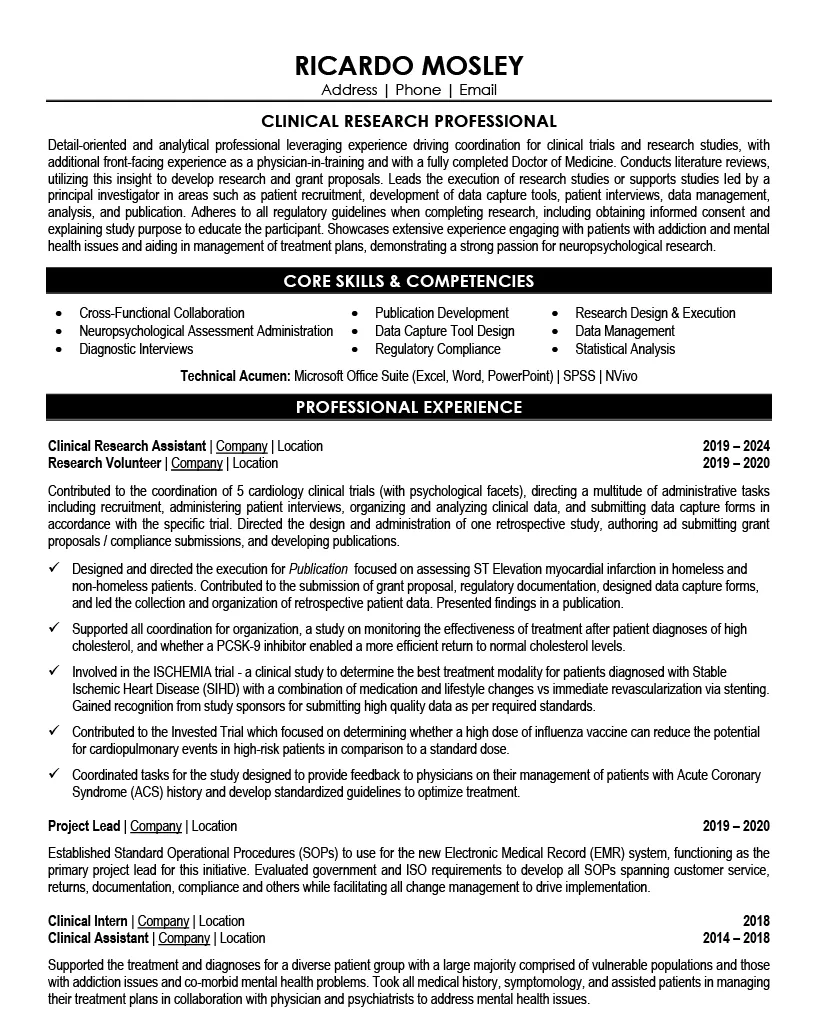
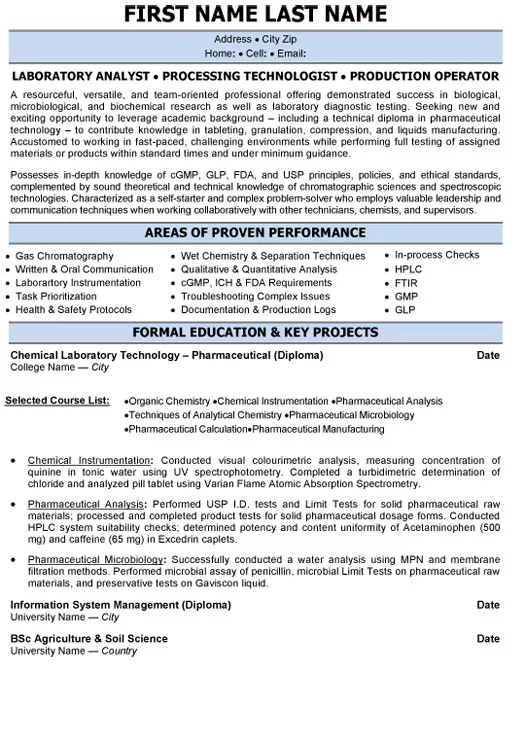
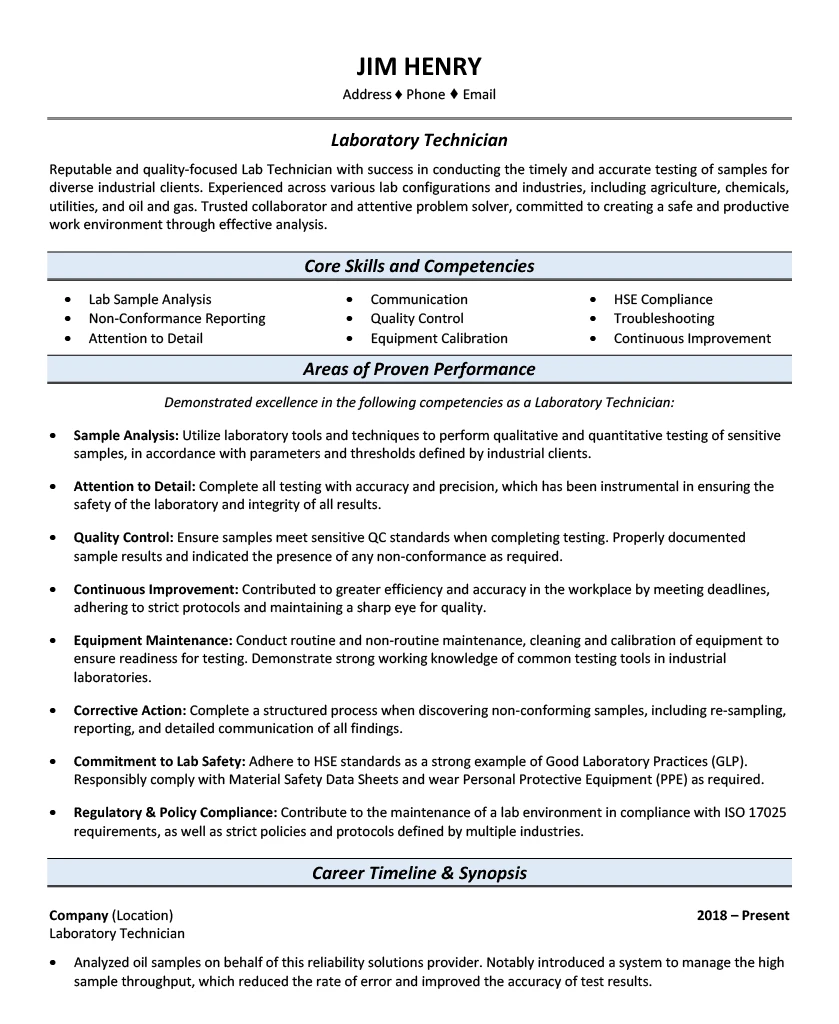
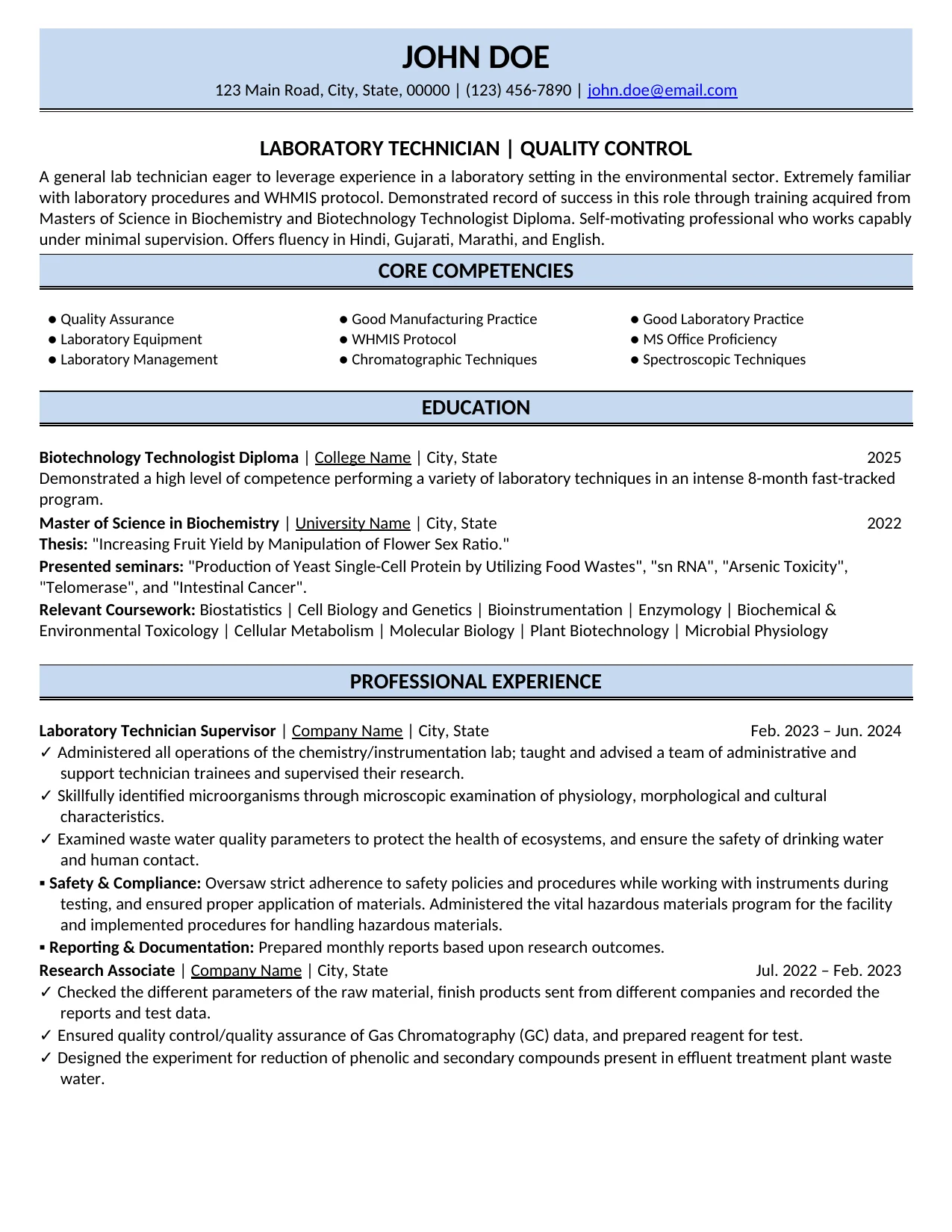
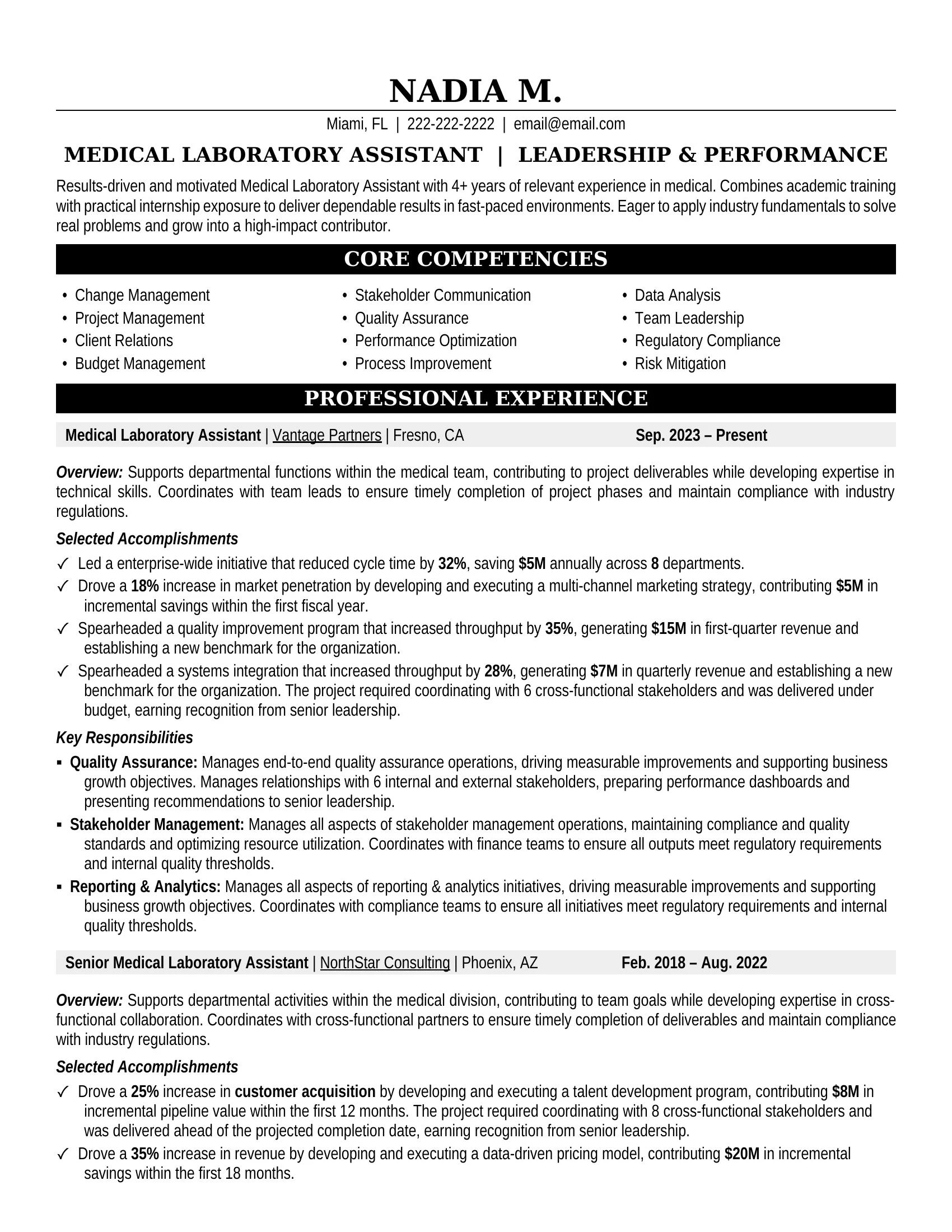
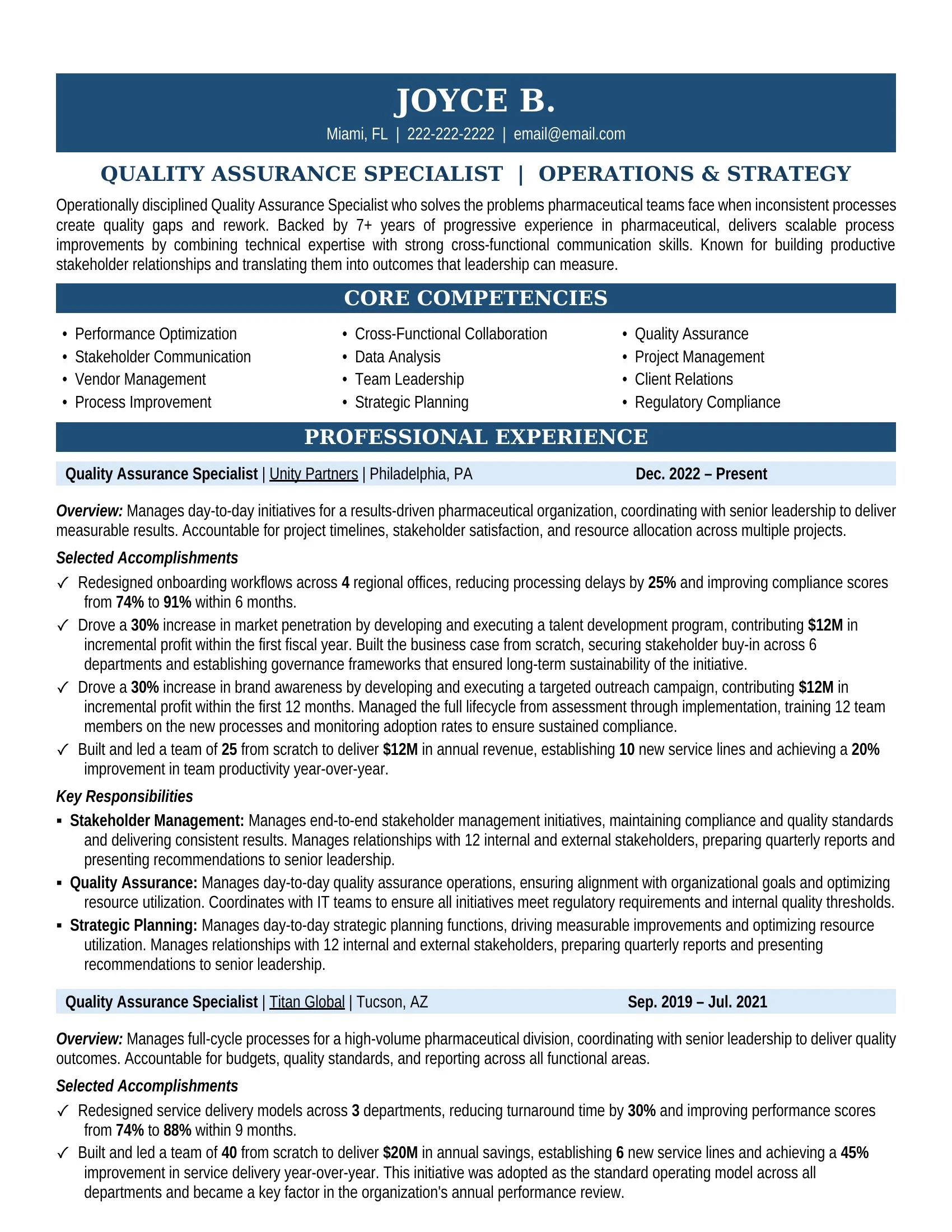
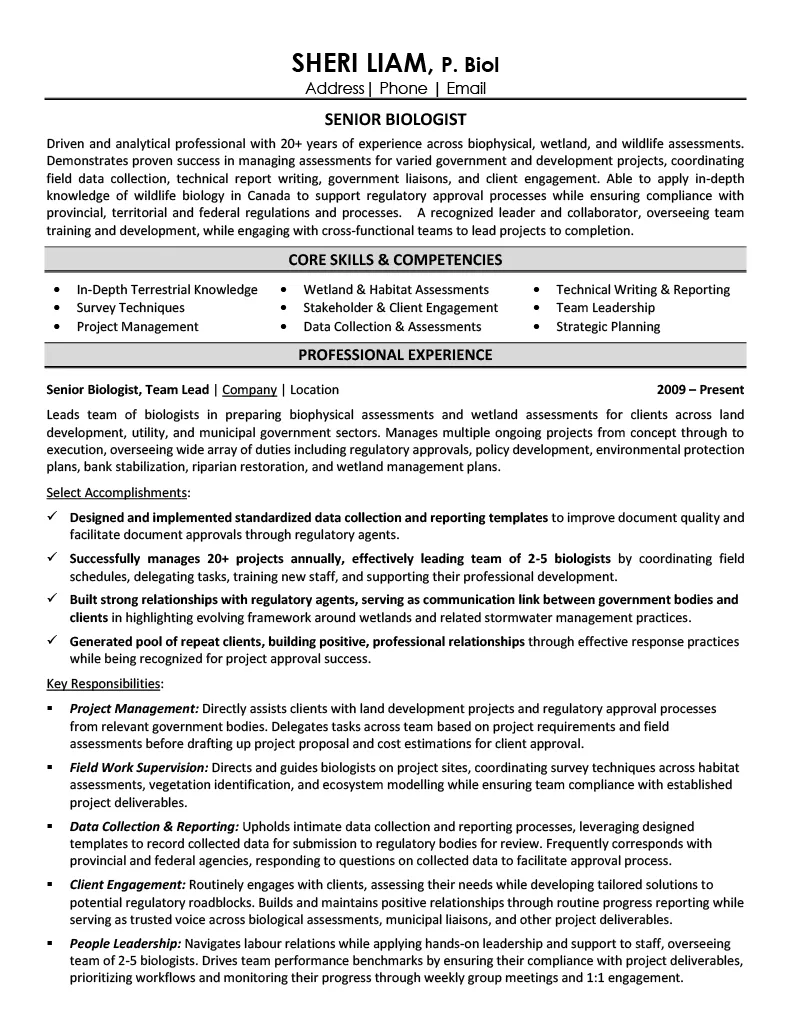
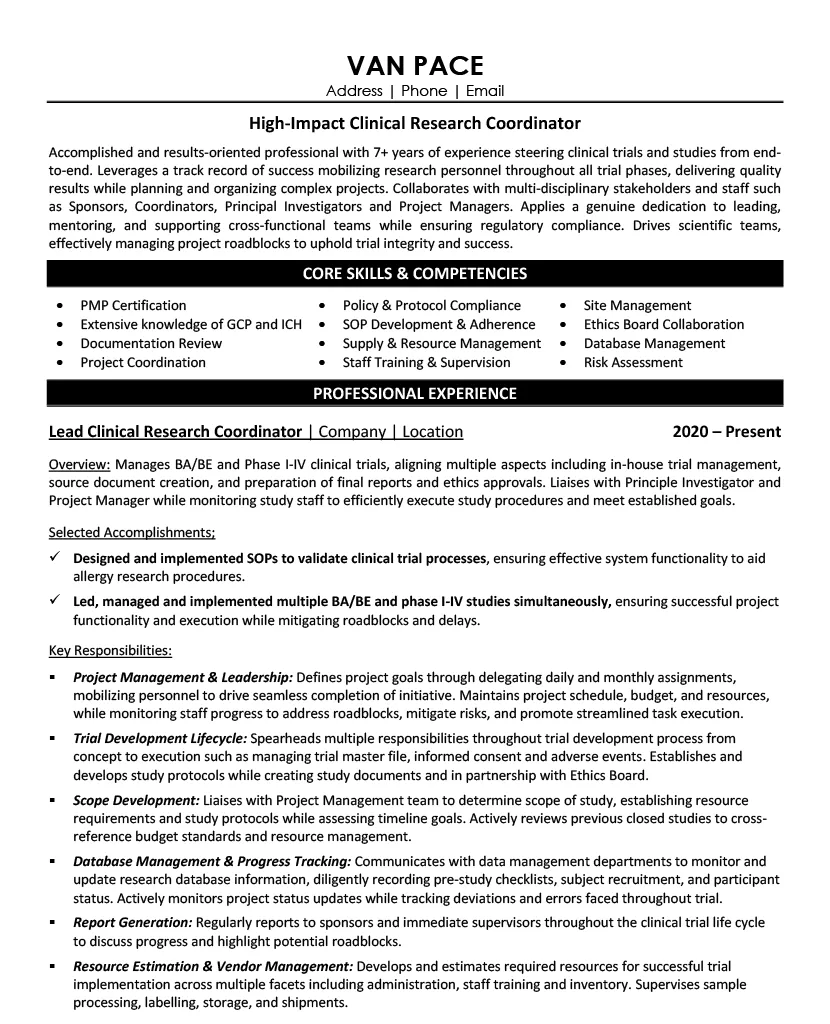
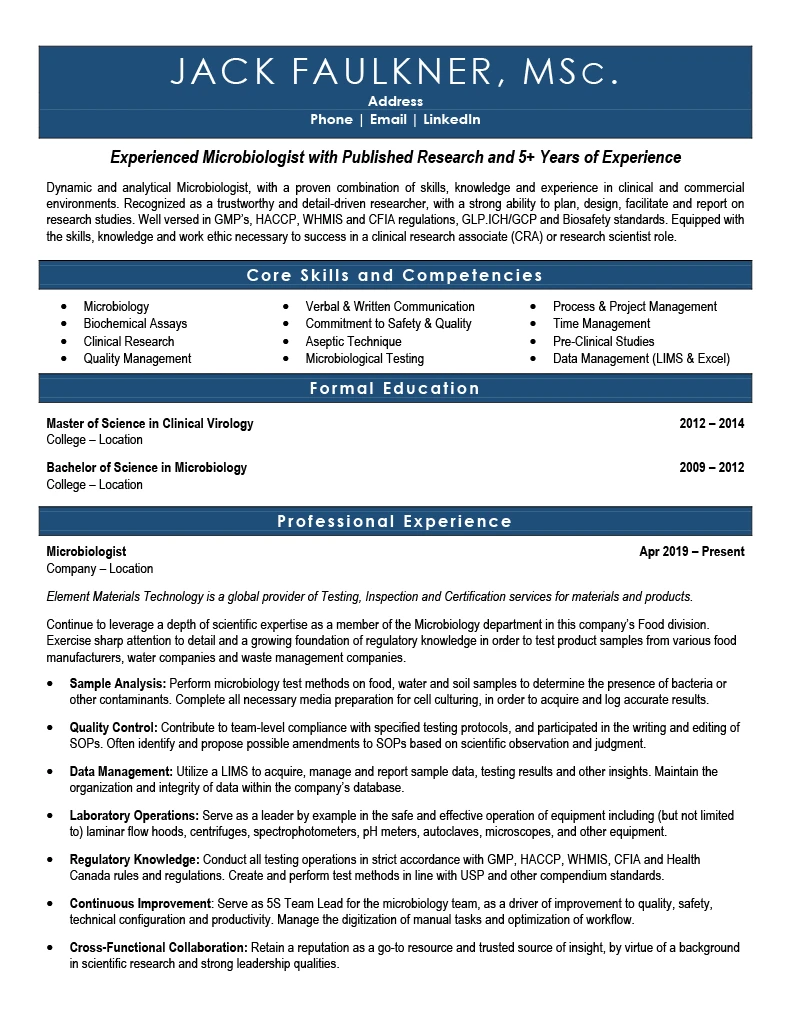
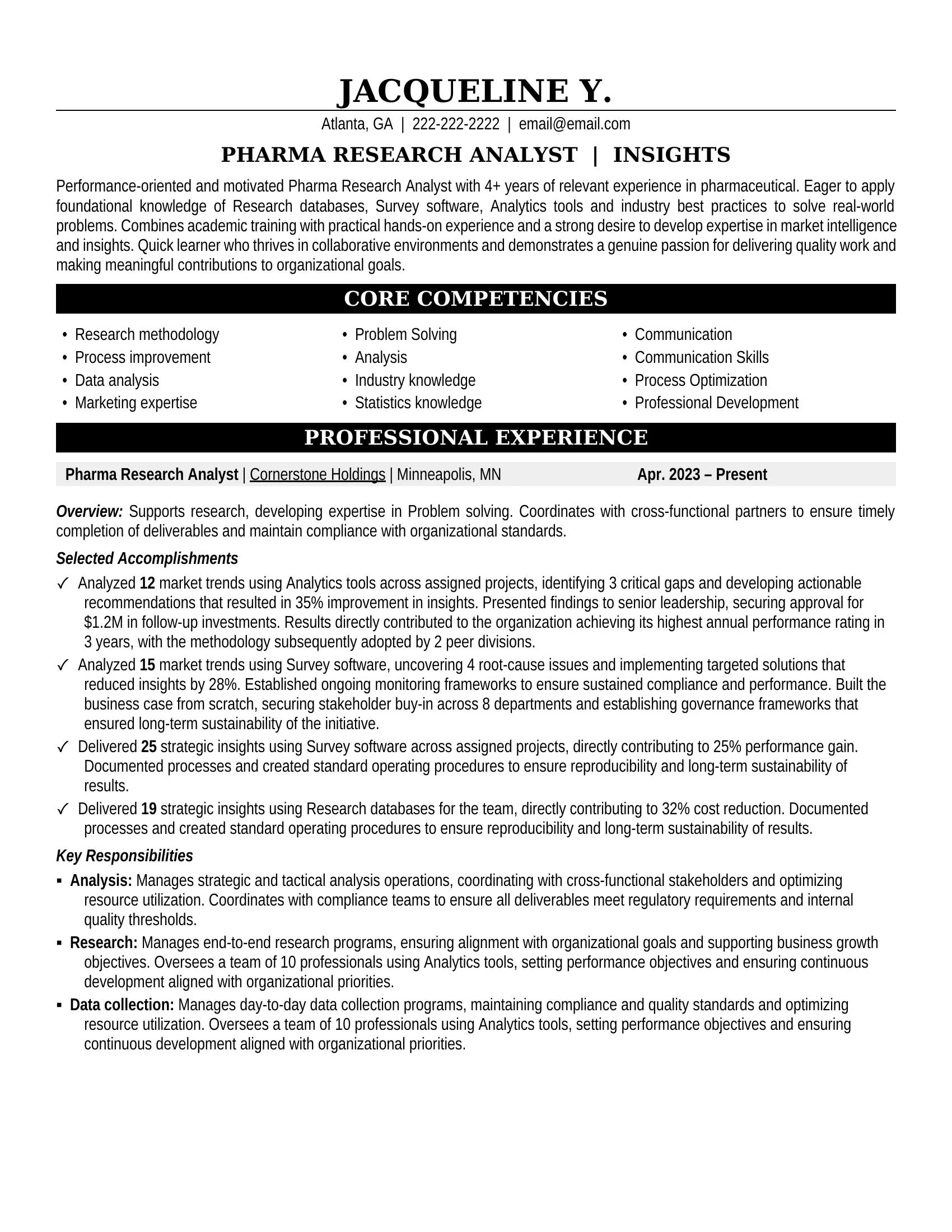
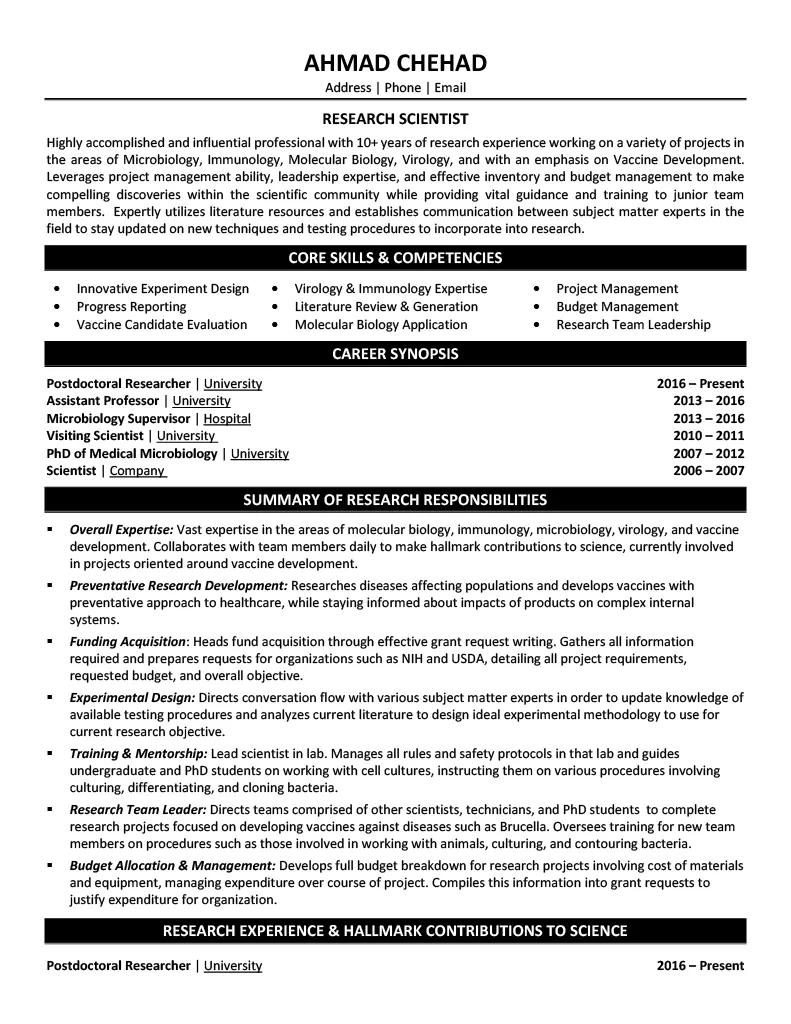
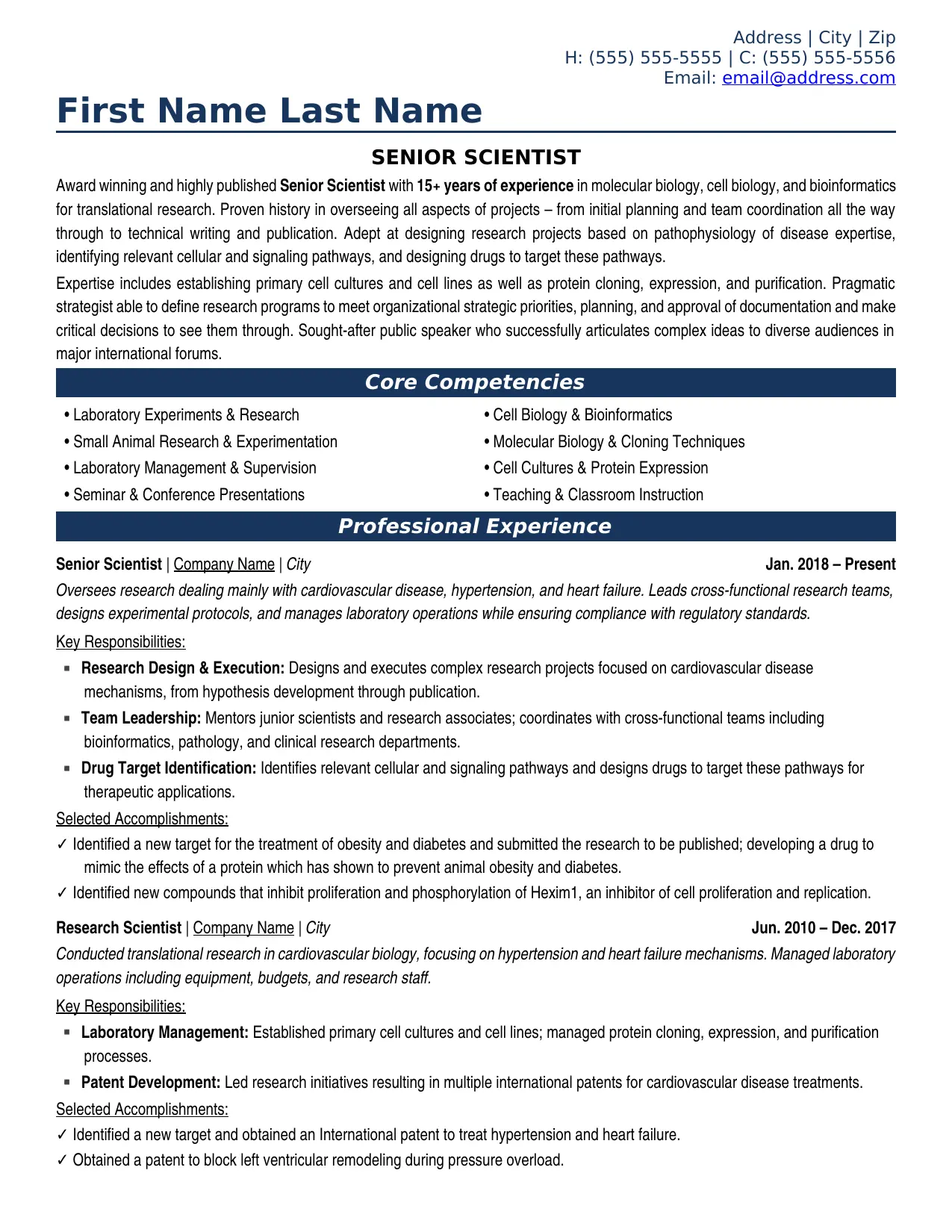
When a hiring manager reads your biotechnology resume, they should think:
"This person has solved the exact problems we're facing."
What were the projects or initiatives you worked on? We probe to understand the scope, the stakes, and the significance.
"Tell me about the biggest project you led last year..."What were the goals of the project? The company's objectives? We connect your work to business outcomes.
"What was the company trying to achieve with this?"What systems, processes, and strategies did you implement? This is where your expertise becomes visible.
"Walk me through how you actually made this happen..."What challenges did you face? What systems did you implement to overcome obstacles?
"What was the biggest challenge, and how did you solve it?"See how our interview process uncovered achievements and turned them into interview-winning proof.
Get Your Biotechnology Resume Written
Biotechnology jobs average 40 applicants per position. You're competing against 800 candidates. Our biotechnology resume examples show how to stand out.
Data based on LinkedIn job postings. Updated Mar 4, 2026.
Here's the math most job seekers don't do:
Your biotechnology resume must stand out against 800 professionals.
What makes you different is the story behind the projects.
Get Your Biotechnology Resume WrittenEvery biotechnology resume example on this page was written through our 1-on-1 interview process. We extract achievements you'd never think to include.
We identify keywords and achievements that get biotechnology resumes noticed.
Targeted questions about your biotechnology projects and results.
Transform responsibilities into quantified achievements.
ATS-optimized resume in 3 business days + 14-day revisions.
80% of biotechnology positions are never advertised. Get your resume directly into the hands of recruiters filling confidential searches.
When you purchase our Resume Distribution service, your resume goes to 450+ recruiters specializing in biotechnology — included in Advanced & Ultimate packages.
| Agency | Location |
|---|---|
|
HA
Hays Specialist Recruitment
|
Nationwide |
|
RA
Randstad Staffing Agency
|
Nationwide |
|
KE
Kelly Services Workforce Solutions
|
Nationwide |
|
MA
ManpowerGroup Talent Solutions
|
Nationwide |
|
AD
Adecco HR Services
|
Nationwide |
Biotechnology averages 40 applicants per position across 5,000 active job postings — but competition varies dramatically by function. Quality Assurance Specialist roles are the most competitive at 90 applicants per opening — a compliance-critical role where hiring managers can afford to be extremely selective. Biologist positions draw 49, Biotechnologynologist and Biotechnology Sales roles each average 39, and Clinical Research Assistant positions see similar levels. Apply to 20 positions in a typical 30-day search and you're one of roughly 800 candidates competing. In biotechnology, the resume that says "Director of Molecular Biology with 20+ years international experience using PCR for viral strain diagnostics" beats "performed laboratory experiments" every time.
Because biotechnology careers produce outcomes that questionnaires never capture. A Biotechnologynologist who "knows lab techniques" could mean anything. Our interview uncovered one client who served as Director of Molecular Biology with 20+ years of international experience, specializing in molecular diagnostics using PCR for viral strains and developing team training programs. A Clinical Research Assistant who "assisted research" becomes someone who managed 10+ clinical trials with full GCP compliance. Our Biotechnology Sales sample revealed a representative managing a $2M territory at 130% of quota in life sciences. A Clinical Lab Scientist who "performed lab tests" becomes someone processing 500+ tests daily under CAP compliance. A questionnaire captures these as one-line bullets. The interview captures the full scope.
They're screening for regulatory compliance and measurable scientific or commercial impact — not degrees or technique lists. For laboratory roles (Biotechnologynologists, Lab Scientists, Biologists): specific methodologies (PCR, ELISA, HPLC, mass spectrometry), throughput volume (our Clinical Lab Scientist sample shows 500+ tests daily), and compliance framework (GLP, GMP, CAP, CLIA). For clinical research roles: trial count, phase experience, GCP compliance, and patient enrollment scope (our CRA sample shows 10+ trials). For quality roles: audit outcomes, CAPA resolution, and regulatory inspection readiness. For biotechnology sales: territory size, quota attainment, and therapeutic area expertise (our sample shows $2M territory at 130% quota). The question isn't whether you have a science degree — it's whether your resume proves what your science has produced.
It matters fundamentally — these are different career tracks that operate under different metrics and different regulatory frameworks. Research (Biotechnologynologists, Biologists, Lab Scientists) measures assay development, throughput optimization, and pipeline contribution under GLP. Clinical (CRAs, CRCs, Clinical Research Assistants) measures trial management scope, enrollment targets, data quality, and GCP compliance. Quality (QA Specialists, QC Analysts) measures audit performance, deviation resolution, and inspection readiness under GMP. Commercial (Biotechnology Sales) measures territory revenue, quota attainment, and therapeutic area penetration. During your interview, our writers identify your specific function and extract the metrics and compliance frameworks that matter in your lane — not generic "life sciences" language.
Our biotechnology resume packages are based on career level and interview depth — from a 30-minute early career session to a 90-minute executive interview. When evaluating price, consider what the number actually buys. A company charging $99: after the company takes its margin, the writer earns $40-60 — enough for about 45 minutes of total work including writing. That's a questionnaire reformat that produces "conducted clinical research and performed laboratory experiments." Our Professional-level interview alone is 60 minutes, followed by job posting analysis, drafting, and revisions — producing "Director of Molecular Biology, 20+ years international experience, molecular diagnostics using PCR for viral strains, team training development." View current packages and pricing.
We offer a 90-Day Interview Guarantee. If you don't land interviews within 90 days of receiving your final biotechnology resume, we rewrite it free of charge. We can make this guarantee because our interview-based process produces resumes built on the regulatory compliance, scientific outcomes, and commercial results that biotechnology hiring managers respond to. Browse the resume samples on this page to see the quality of work we deliver.